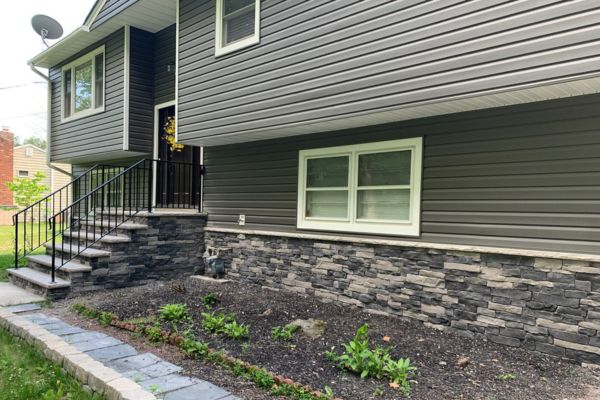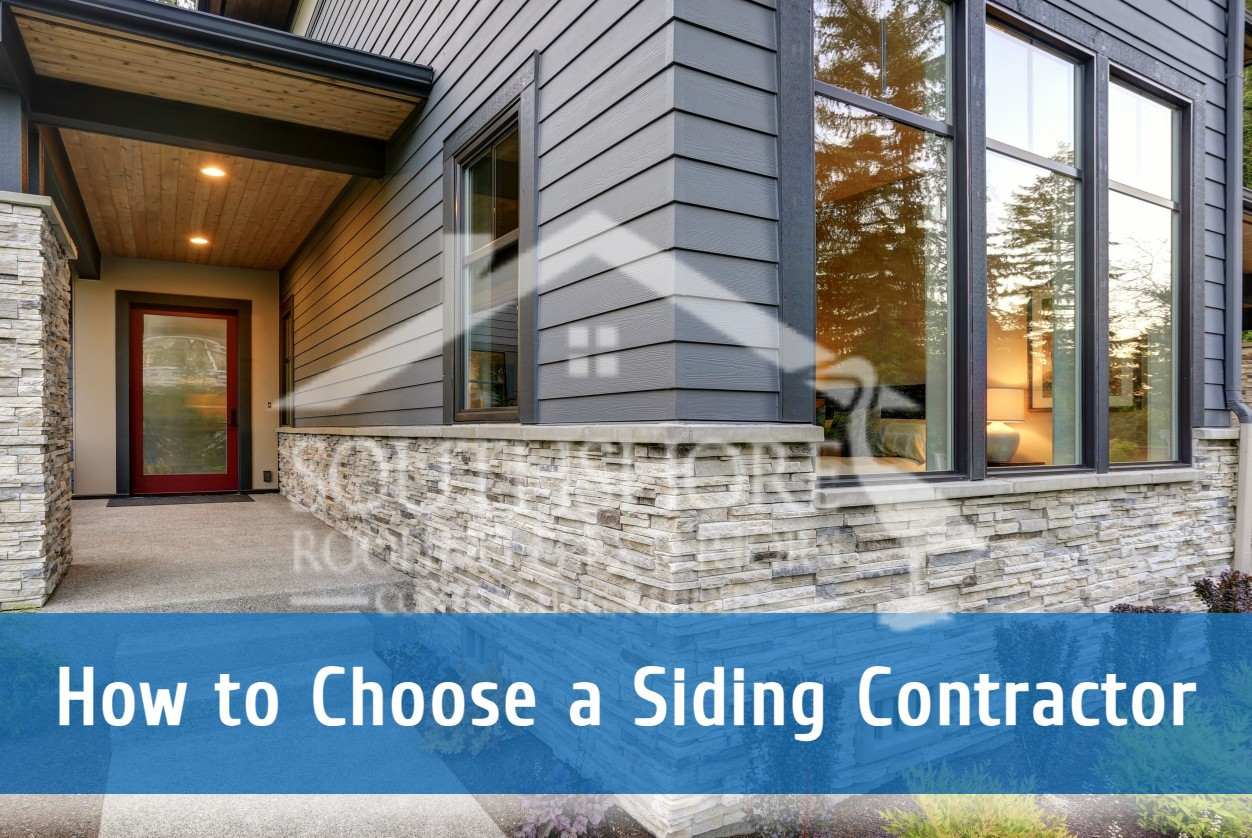Your Go-To Morris Siding Contractor for All Residential Siding Needs
Your Go-To Morris Siding Contractor for All Residential Siding Needs
Blog Article
The Crucial Guide to the Various Kinds Of Home Siding and Their Distinct Benefits
In the world of home improvement, picking the right house siding is a vital decision that affects both aesthetic charm and practical efficiency. The range of materials available, such as wood, plastic, fiber brick, steel, and cement, each offer one-of-a-kind benefits that cater to various demands and preferences. Understanding these differences can dramatically boost the long life and value of a home - morris siding contractor. With so numerous alternatives to take into consideration, which siding material truly stands out for your certain project? Exploring these selections can bring about informed choices that straighten with both design and practicality.
Wood Siding
Wood house siding, a preferred option for residential exteriors, provides a timeless visual that combines all-natural charm with structural integrity. This siding material is offered in different designs, consisting of clapboard, tiles, and board-and-batten, permitting property owners to customize their appearance to match their style choices. Wood home siding is typically crafted from durable species such as cedar, redwood, or want, which are recognized for their durability and capacity to endure ecological stress factors.
One of the primary advantages of timber exterior siding is its exceptional insulation homes, which can add to power performance and reduced home heating costs. Additionally, wood exterior siding is naturally degradable, making it an eco-friendly option when sourced sustainably. Routine upkeep, consisting of painting or staining, can prolong its life expectancy and enhance its look, allowing home owners to protect the all-natural charm of the timber.
However, prospective downsides include sensitivity to pests, rot, and weather damage, requiring adequate therapy and maintenance - morris siding contractor. Regardless of these concerns, when appropriately taken care of, wood siding can supply a gorgeous and durable service that improves the personality of a home while supplying a cozy, inviting ambience

Plastic House Siding
Vinyl house siding has emerged as a leading choice for home owners seeking a low-maintenance exterior alternative that combines sturdiness and cost. This flexible product is crafted from polyvinyl chloride (PVC), making it resistant to different weather, including wetness and UV rays. Therefore, plastic house siding does not warp, rot, or fade, ensuring resilient visual allure.
Among the primary advantages of plastic house siding is its substantial series of styles and colors, permitting home owners to accomplish the desired try to find their home without the need for frequent repainting. Furthermore, vinyl home siding is very easy to install, which can substantially decrease labor expenses during building or remodelling tasks.
Plastic exterior siding additionally adds to energy performance. Many options attribute insulation support, which enhances thermal efficiency, aiding to keep comfy interior temperature levels and potentially decreasing power bills. Its smooth surface assists in easy cleansing, calling for just periodic cleaning with a yard hose pipe to get rid of dirt and debris.
Fiber Cement Exterior Siding
Fiber cement siding has actually gained traction amongst builders and homeowners alike because of its exceptional combination of toughness and aesthetic convenience. Composed of a combination of cement, sand, and cellulose fibers, this home siding alternative is crafted to endure severe weather problems, including high winds, heavy rain, and temperature fluctuations, making it a long-lasting option for household outsides.

Among the key benefits of fiber concrete house siding is its resistance to bugs, such as termites, and its non-combustible nature, offering improved fire safety. morris siding contractor. In addition, it is readily available in a vast array of designs, appearances, and shades, permitting property owners to accomplish their preferred visual without compromising performance
An additional advantage is its low maintenance requirements; fiber concrete exterior siding commonly requires paint or discoloration every 5-10 years, which is much less regular than other products. Moreover, its durability contributes to a lower overall expense of ownership, as it reduces the requirement for frequent repair work or substitutes.
Inevitably, fiber cement home siding represents an outstanding financial investment for those looking for a resilient, attractive, and versatile exterior click for more info alternative, combining both type and function to boost the home's curb appeal.
Metal Exterior Siding
The appeal of steel siding exists in its durable sturdiness and modern-day visual allure, making it a favored selection for contemporary architecture. Available in materials such as light weight aluminum and steel, steel house siding offers a variety of finishes and shades, enabling homeowners to accomplish a personalized look that complements their style vision.

Power performance is another considerable advantage, as numerous steel home siding products are made with insulation alternatives that help control indoor temperature levels. This can bring about decreased power expenses over time. Furthermore, metal exterior siding is usually recyclable, making it an eco-friendly selection for sustainability-minded home owners.
The setup procedure for steel house siding can be relatively straightforward, leading to a you could try this out quicker turnaround time for building and construction projects. On the whole, metal siding incorporates performance and style, making it a practical alternative for those looking for a aesthetically enticing and enduring outside finish.
Block and Stone Home Siding
Block and rock house siding sticks out as a timeless choice that boosts the aesthetic beauty of any kind of home. Recognized for their longevity and reduced upkeep, these products offer a phenomenal roi while raising the property's curb charm. Offered in various colors, appearances, and patterns, brick and rock can be customized to match diverse architectural styles, from typical to modern.
Among the main advantages of brick and stone exterior siding is their energy performance. Both materials possess all-natural shielding homes that assist control interior temperature levels, possibly minimizing cooling and heating costs. In addition, they provide superior fire resistance contrasted to other siding alternatives, adding to boosted safety.
Another advantage is their durability. Brick and rock can last for years, frequently calling for very little maintenance past occasional cleansing. Unlike timber siding, they are invulnerable to bugs and rot, making sure a long-lasting exterior that withstands the elements.
Conclusion
In recap, the option of exterior siding substantially influences a home's visual allure, energy performance, and maintenance needs. Each type of exterior siding-- whether wood, plastic, fiber steel, concrete, or brick and stone-- uses distinct benefits customized to numerous property owner preferences and environmental problems.
One of the key advantages of wood siding is its excellent insulation properties, which can add to power performance and reduced home heating prices. Additionally, timber siding is eco-friendly, making it an eco friendly choice when sourced sustainably.One of the main advantages of metal house siding is its resistance to various environmental elements.Power efficiency is one more considerable advantage, as many metal exterior siding items are created with insulation options that aid control interior discover here temperature levels. Each type of home siding-- whether wood, plastic, fiber brick, cement, or metal and rock-- uses distinct advantages tailored to various home owner preferences and ecological problems.
Report this page